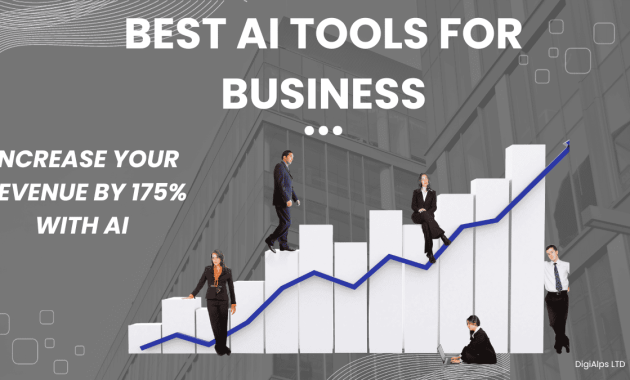
Skyrocket Success with 10 Business Intelligence Tools Every CEO Uses
In today’s data-driven world, the ability to make informed decisions is paramount. CEOs face a constant barrage of information, and sifting through the noise to find actionable insights can be a daunting task. This is where Business Intelligence (BI) tools come into play. These powerful platforms transform raw data into digestible formats, empowering leaders to understand trends, identify opportunities, and mitigate risks. This article explores 10 essential business intelligence tools that every CEO should consider utilizing to drive success.
The modern CEO’s role demands a proactive and data-informed approach. Gone are the days of relying solely on gut feeling. Today’s leaders leverage data to understand market dynamics, optimize operations, and make strategic decisions. Investing in the right business intelligence tools is no longer a luxury, but a necessity for survival and growth. The following tools represent a diverse range of capabilities, from data visualization to advanced analytics.
Understanding the Power of Business Intelligence
Business Intelligence is more than just a collection of dashboards. It’s a strategic approach to gathering, analyzing, and interpreting data to improve decision-making. It enables organizations to:
- Gain a comprehensive understanding of their business.
- Identify areas for improvement and optimization.
- Make data-driven decisions with confidence.
- Track key performance indicators (KPIs) in real-time.
- Forecast future trends and anticipate market changes.
By implementing these tools, CEOs can cultivate a culture of data-driven decision-making, leading to increased efficiency, profitability, and a competitive edge. The right business intelligence tools can transform a company.
Top 10 Business Intelligence Tools for CEOs
1. Tableau
Tableau is a leading data visualization tool renowned for its user-friendly interface and powerful analytical capabilities. CEOs can quickly create interactive dashboards and reports, allowing them to explore data visually and identify key trends. Its drag-and-drop functionality makes it accessible to users with varying levels of technical expertise. Tableau excels at data storytelling, transforming complex data into easily understandable narratives. This makes it a crucial tool for communicating insights to stakeholders.
2. Microsoft Power BI
Power BI is a versatile business intelligence tool offered by Microsoft. It integrates seamlessly with other Microsoft products, making it a popular choice for organizations already invested in the Microsoft ecosystem. Power BI offers a wide range of features, including data modeling, interactive dashboards, and real-time data updates. It provides powerful analytics capabilities, enabling CEOs to analyze data from various sources and gain valuable insights. Power BI is also relatively affordable, making it accessible to businesses of all sizes.
3. Qlik Sense
Qlik Sense is another powerful data visualization and business intelligence tool that focuses on data discovery and self-service analytics. It utilizes an associative data model, allowing users to explore data from different angles and uncover hidden relationships. Qlik Sense’s intuitive interface and advanced analytics features make it an excellent choice for CEOs who need to delve deep into their data. It is known for its data discovery capabilities.
4. Sisense
Sisense is a platform designed for complex data analysis and embedded analytics. It allows businesses to analyze large datasets and build custom dashboards. Sisense is particularly well-suited for organizations that need to integrate business intelligence into their existing applications and workflows. It offers powerful features for data modeling, data preparation, and data visualization. CEOs can use Sisense to create highly customized reports and dashboards.
5. Domo
Domo is a cloud-based business intelligence platform that combines data visualization, collaboration, and mobile access. It offers a comprehensive suite of features, including data connectors, real-time dashboards, and automated alerts. Domo’s focus on collaboration makes it easy for teams to share insights and make data-driven decisions together. Domo is often used by CEOs to monitor key metrics.
6. ThoughtSpot
ThoughtSpot is a search-driven business intelligence tool that allows users to ask questions about their data in plain language. Its natural language processing capabilities make it easy for anyone, regardless of their technical skills, to access and analyze data. CEOs can use ThoughtSpot to quickly find answers to their questions and make informed decisions. It is a powerful tool for data exploration.
7. Looker (Google Cloud)
Looker, now part of Google Cloud, is a business intelligence and data analytics platform that focuses on data modeling and governance. It allows organizations to define a single source of truth for their data and ensure consistency across all reports and dashboards. Looker’s robust data modeling capabilities make it an ideal choice for organizations with complex data needs. It helps CEOs create data-driven cultures.
8. MicroStrategy
MicroStrategy is a comprehensive business intelligence platform that offers a wide range of features, including data visualization, mobile analytics, and advanced analytics. It is known for its scalability and performance, making it suitable for large enterprises. MicroStrategy provides CEOs with a powerful platform for analyzing data and making strategic decisions. MicroStrategy offers strong enterprise-level features.
9. SAS Business Intelligence
SAS business intelligence is a suite of tools focused on advanced analytics and statistical modeling. It is particularly well-suited for organizations that need to perform complex data analysis and predictive modeling. SAS provides CEOs with powerful tools for uncovering hidden patterns and trends in their data. SAS is often used for advanced analytical tasks.
10. Zoho Analytics
Zoho Analytics is a cloud-based business intelligence tool that offers a user-friendly interface and affordable pricing. It is designed for small and medium-sized businesses. Zoho Analytics provides CEOs with a cost-effective solution for data analysis and reporting. It’s known for its ease of use and quick setup. It is an accessible business intelligence option.
Selecting the Right Business Intelligence Tool
Choosing the right business intelligence tool depends on a variety of factors, including the size of the organization, the complexity of the data, and the specific needs of the CEO. Consider the following factors when making your selection:
- Data Sources: Ensure the tool can connect to all relevant data sources.
- Ease of Use: Choose a tool that is user-friendly and easy to navigate.
- Features: Select a tool that offers the features you need.
- Scalability: Choose a tool that can scale with your business.
- Cost: Consider the cost of the tool and whether it fits your budget.
- Support: Evaluate the level of support offered by the vendor.
By carefully evaluating these factors, CEOs can select the business intelligence tool that best meets their needs. This can lead to significant improvements in decision-making and overall business performance.
Implementing Business Intelligence for Success
Implementing a business intelligence strategy requires more than just investing in the right tools. It also involves establishing clear goals, defining KPIs, and fostering a data-driven culture. CEOs should work with their teams to develop a comprehensive plan for data collection, analysis, and reporting. Training and education are crucial to ensure that employees can effectively use the tools and interpret the data. A well-executed business intelligence strategy can transform a company.
The Future of Business Intelligence
The field of business intelligence is constantly evolving. As technology advances, new tools and features emerge. Artificial intelligence and machine learning are playing an increasingly important role in data analysis, enabling organizations to gain even deeper insights. CEOs who stay informed about the latest trends in business intelligence will be better positioned to make informed decisions and achieve success. The future of business intelligence is promising.
Conclusion
In conclusion, the business intelligence tools discussed in this article offer a powerful way for CEOs to gain insights into their businesses and make data-driven decisions. By selecting the right tools and implementing a comprehensive business intelligence strategy, CEOs can skyrocket their success and achieve their business goals. Embrace these tools to transform your company. The right tools are essential for any CEO.
[See also: Related Article Titles]

